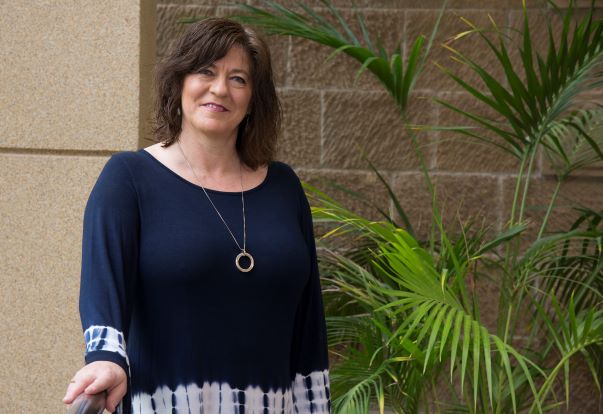
It is exciting to think that the research I am undertaking will have an impact on Tasmanian health services and the people working within health organisations.
“As a school teacher for twenty-three years and being a mother of four children of my own, watching the development of children has always been something that has fascinated me. Wanting to further understand human behaviour and the workings of the brain, I completed my Masters in Clinical Psychology at the University of Tasmania, going on to open a private practice in Hobart. Seeing the varied impact that autism can have on a child’s development, sparked my interest to learn more about this neurodevelopmental condition and led me to pursue a PhD at UTAS.
I am currently researching the enablers and barriers of statewide implementation of a developmental surveillance tool referred to as the SACS-R (Social Attention and Communication Surveillance-Revised) developed by Dr Josephine Barbaro from the Olga Tennison Autism Research Centre at La Trobe University, Victoria. As part of an earlier project, Child Health and Parenting Service (CHaPS) nurses have been using this tool to respond to a set of items to monitor a child’s development between their 12-24 month child health check-ups. If a nurse identifies signs of atypical development, the child is then referred on for a comprehensive assessment at St Giles. The SACS-R tool aims to support early detection of autism and early intervention to maximise the developmental outcomes of a child and enable children and families to have early access to support programs and intervention services.
The aim of my research is that through a collaborative approach with key stakeholders (including parents, CHaPS nursing staff, St Giles Developmental Assessment Team, Autism Specific Early Learning & Care Centre, Autism Advisory Panel, Early Childhood Intervention Service, Autism Tasmania, members of Parliament, allied health professionals, and members of key health and educational associations) and an integration of their core perspectives, the enablers and barriers of statewide implementation can be identified, understood and addressed in order to facilitate successful adoption of the SACS-R into routine clinical practice.
I feel very privileged to work and conduct research in the neurodevelopmental field and love meeting the children and their families. It is exciting to think that the research I am undertaking will have an impact on Tasmanian health services and the people working within health organisations who identify autism in young children and then provide support to those children and their families.”
Ali received a grant for her PhD scholarship (2016-2019) from the Autism Cooperative Research Centre (Autism CRC) to assist with this project.